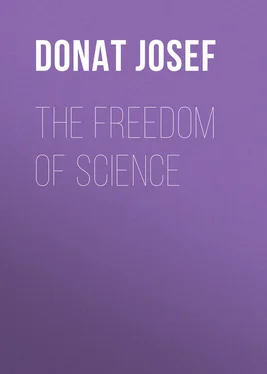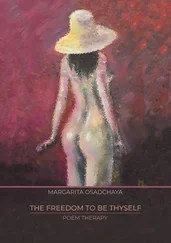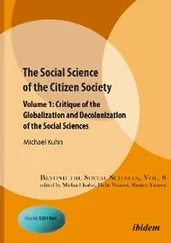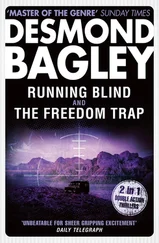Josef Donat - The Freedom of Science
Здесь есть возможность читать онлайн «Josef Donat - The Freedom of Science» — ознакомительный отрывок электронной книги совершенно бесплатно, а после прочтения отрывка купить полную версию. В некоторых случаях можно слушать аудио, скачать через торрент в формате fb2 и присутствует краткое содержание. Жанр: foreign_antique, foreign_prose, на английском языке. Описание произведения, (предисловие) а так же отзывы посетителей доступны на портале библиотеки ЛибКат.
- Название:The Freedom of Science
- Автор:
- Жанр:
- Год:неизвестен
- ISBN:нет данных
- Рейтинг книги:4 / 5. Голосов: 1
-
Избранное:Добавить в избранное
- Отзывы:
-
Ваша оценка:
- 80
- 1
- 2
- 3
- 4
- 5
The Freedom of Science: краткое содержание, описание и аннотация
Предлагаем к чтению аннотацию, описание, краткое содержание или предисловие (зависит от того, что написал сам автор книги «The Freedom of Science»). Если вы не нашли необходимую информацию о книге — напишите в комментариях, мы постараемся отыскать её.
The Freedom of Science — читать онлайн ознакомительный отрывок
Ниже представлен текст книги, разбитый по страницам. Система сохранения места последней прочитанной страницы, позволяет с удобством читать онлайн бесплатно книгу «The Freedom of Science», без необходимости каждый раз заново искать на чём Вы остановились. Поставьте закладку, и сможете в любой момент перейти на страницу, на которой закончили чтение.
Интервал:
Закладка:
Cheered on by this treaty of peace, Paulsen writes: “Thus critical philosophy has solved the old problem of the relation of knowledge to faith. Kant is convinced that by properly setting the limits he has succeeded in laying the foundation for real and enduring peace between them. In fact, upon this in the first place will rest the importance and vitality of his philosophy. It gives to knowledge, on the one hand, what belongs to it for unlimited research, the whole world of phenomena; on the other hand it gives to faith its eternal right, the interpretation of life and the world from the view-point of values. There can be no doubt that herein lies the cause of the great impression made by Kant upon his time; he appeared as the liberator from unbearable suspense” (Immanuel Kant, 1898, 6).
To a critical observer, such peace-making is utterly incomprehensible. They probably did not consider that in this way religion and faith were not liberated, but dispossessed ; not brought to a place of safety, but transferred from the realm of reality into the realm of fancy. Similarly an aggressive ruler might address a neighbouring prince thus: We cannot agree any longer, let us make peace: you retain all your titles, and I shall see to your decent support, but you will have to lay down your crown and sovereignty and leave the country – in this way we can have peace. Religion, once the greatest power in the life of man, for the sake of which man made sacrifices and even laid down his life, has now become a matter of sterile devotion; it may, moreover, no longer claim power and importance; it is now reduced to a poetic feeling, with which one can fill up intellectual vacancies. No longer is man here for religion's sake; religion is here for man's sake. A buttonhole flower, a poetic perfume to sprinkle over his person. For he does not want to give up religion entirely. “We are the less inclined to give up religion forthwith, since we are prone to consider a religious disposition as a prerogative of human nature, even as its noblest title.” Thus D. F. Strauss , when he asked of those who sympathized with his opinions, Have we still religion? (Der alte u. neue Glaube, II, n. 33). Of course religion has now become something quite different; it has been consigned to deep degradation .
To be sure, feeling is of great importance in religion. Dissatisfaction with the things of this earth, man's longing for something higher, for the Infinite, his craving for immortality, for aid and consolation – are all naturally seeking for religious truths. If these are known, they in turn arouse fear and hope, love and gratitude; they become a source of happiness and inspiration. But these feelings have no meaning unless we are certain that there exists something corresponding to them; much less could they of themselves be a conviction, just as little as hunger could convince us that we have food and drink. If one cannot perceive that there is a God, a Providence, a life beyond, then religion sinks to the level of a hazy feeling, without reason and truth, which must appear foolish to men who think, – as “the great phantasmagoria of the human mind, which we call religion” ( Jodl , Gedanken über Reform Katholizismus, 1902, 12), – which departs from the sphere of rational intellectual life, and which many have even begun to contemplate from the view-point of psychopathology. It is only due to the after-effect of a more religious past that religion is suffered to lead still a life of pretence: moral support in struggles it can give no more, nor comfort in dark hours, much less may it presume to guide man's thought. It stands far below science.
Despair of the possibility of knowing higher truths is confronting us, the disease of deteriorating times and intellectually decaying nations. But just as Christianity, once in youthful vigour, went to the rescue of an old World dying of scepticism, just as the Catholic Church has ever upheld the rights of reason, especially against Protestantism, which from its beginning has torn asunder faith and knowledge: so the Catholic Church stands to this day unaffected by the doubting tendency of our times, upholding the rights of reason. It also upholds faith. But its faith has nothing to do with modern agnosticism.
What Faith Is
What, then, according to Catholic doctrine, is faith and the duty to believe?
Let us briefly recall to mind the fundamental tenets of the Christian religion . It tells us that even in the Old Testament, but more especially in the New, through His Incarnate Son, God has revealed to man all those religious and moral truths which are necessary and sufficient for the attainment of his supernatural end. Some of them are truths which reason by itself could not discover; others it could discover, but only by great labour. And this divine revelation demands belief. Belief is natural to man. The child believes its parents, the judge believes the witnesses, the ruler believes his counsellors. God wished to meet man in this way, and to give him certainty in regard to the highest truths.
But revelation was to be an heritage of mankind, it was to be transmitted and laid unadulterated before all generations. For this reason it could not be left unprotected to the vicissitudes of time, or the arbitrary interpretation of the individual. It would have utterly failed in its purpose of transmitting sure knowledge of certain truth, – the history of Protestantism proves this, – had it been given merely with the injunction: Receive what I have committed to your keeping, and do with it what you please. No, it had to be made secure against subjective, arbitrary choice.
To this end Christ established an international organization, the Church , and committed to it His Gospel as a means of grace, together with the right and sacred duty to teach it to all men in His Name, to keep inviolate the heirloom of revelation, defending it against all error. “Going, therefore, teach ye all nations” (Matt. xxviii. 19), was His command. “Go ye into the whole world and preach the Gospel to every creature; he that believeth and is baptized shall be saved, but he that believeth not shall be condemned” (Mark xvi. 15). “He that heareth you, heareth Me, and he that despiseth you, despiseth Me” (Luke x. 16). “Behold, I am with you all days, even to the consummation of the world” (Matt. xxviii. 20). He gave His divine aid to the Church, in order that she might infallibly keep His doctrine to the very end of time.
Thus the divine revelation and the Church approach all men with the duty to believe: “he that believeth shall be saved,” God gravely commands; “and if he will not hear the Church, let him be to thee as the heathen and publican” (Matt. xviii. 17). They lay their teachings before the human intellect, bidding it retain them as indubitable truth, upon their infallible testimony, yet only after convincing itself that God has really spoken, and that this Church is the true one, which cannot err. And only after having convinced itself of the credibility of the proposed teaching is it obliged to believe. Hence, according to the Christian mind, faith is the reasonable conviction of the truth of what is proposed for belief, by reason of an acknowledged infallible testimony .
The Catholic dogma we find explained in the definition of the Vatican Council, which had to expose so many errors that are liable in our days to confuse the faithful in their notions of faith and Church. “This faith,” says the Vatican Council (Sess. III, chap. 3), “which is the beginning of human salvation, the Catholic Church teaches to be a supernatural virtue, by which, through the inspiration and co-operation of the grace of God, we believe to be true what He has revealed, not on account of the intrinsic truth of it, perceived by the natural light of reason, but on the authority of God who gives the revelation, who can neither deceive nor be deceived… Nevertheless, in order that the service of our belief might be in accord with reason (‘a reasonable service’) God willed to unite to the internal helps of the Holy Ghost external proofs of His revelation, to wit, external works divine, especially miracles and prophecies, which, clearly demonstrating God's omnipotence and infinite knowledge, are most certain signs of divine revelation and are suited to the intelligence of all.” The Council adds expressly the canon: “If any one say that divine revelation cannot be made credible by exterior signs, and that men ought therefore to be moved to belief solely by their interior experience or individual inspiration, let him be anathema.”We have here stated the Catholic dogma as unanimously taught by all Christian centuries, by all Fathers and theologians.
Читать дальшеИнтервал:
Закладка:
Похожие книги на «The Freedom of Science»
Представляем Вашему вниманию похожие книги на «The Freedom of Science» списком для выбора. Мы отобрали схожую по названию и смыслу литературу в надежде предоставить читателям больше вариантов отыскать новые, интересные, ещё непрочитанные произведения.
Обсуждение, отзывы о книге «The Freedom of Science» и просто собственные мнения читателей. Оставьте ваши комментарии, напишите, что Вы думаете о произведении, его смысле или главных героях. Укажите что конкретно понравилось, а что нет, и почему Вы так считаете.












